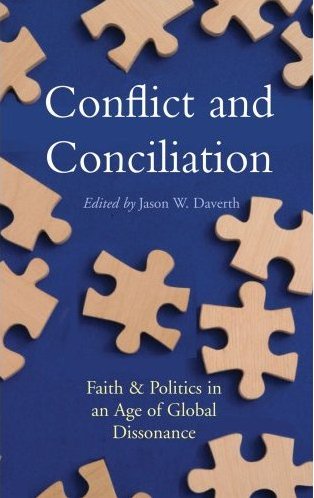Amnesty for Iraqi Insurgents may be Our Best Hope
Over the last couple of days, the debate over amnesty has prompted a bitter partisan divide in the House and Senate with Republicans supporting it and Democrats opposing. One might think the conservative world has turned upside-down. In the same breath, Republican hawks have adamantly opposed amnesty for the light crime of illegal immigration while Specter has now been caught in the act of proposing amnesty for all previous White House and NSA felonies. With the GOP now pushing to extend amnesty to include the deliberate targeting and murder of U.S. soldiers, I have to wonder - are the Republicans being politically disingenuous and opportunistic, or are they finally beginning to see shades of grey within their tidy dichotomies?
Among the Democrats, a rather remarkable consensus has emerged that amnesty represents a dangerous and insulting conclusion to this debacle. Many among the left-wing blogosphere are understandably upset with the double-standard, and rightfully so - this policy appears to be a direct slap in the face to all who have sacrificed their lives and limbs for this elective and gratuitous war. However, it must be considered that this entire war has been in vain and the disastrous policies of this administration have long surpassed the point where we should consider it a sunk cost. With the death toll now at 2,500, there is a virtual consensus among respected international relations experts that the U.S. War on Terror has been a resounding failure and that the war in Iraq cannot be won. Under these circumstances, it is imperative that we seek to explore creative solutions with which to restore some semblance of stability to Iraq. Therefore, the seemingly ludicrous position of amnesty should not be so readily discounted.
To begin with, we must never forget that there are two countries involved in this war and we are obliged as fellow humans to consider the local perspective. There are many among the Iraqi population who regard - perhaps legitimately - the U.S. military as an occupying force with imperial ambitions. Certainly, the U.S. has done little of substance with which to counter that perception. In the course of the occupation, it is estimated that anywhere between 30,000 and 100,000 Iraqi's have lost their lives. This body count says nothing about the tertiary suffering of the millions afflicted with poverty, homelessness, starvation, lack of public utilities, and outright brutalities committed at the hands of U.S. soldiers. Were this happening in my own country, I could not say with any certainty that I myself might not pick up a gun or a bomb to defend my family.
None of this is to say that murder is justifiable, from either side, within a moral framework. However, some issues must necessarily transcend tidy dichotomies of right vs. wrong, "stay and fight" vs. "cut and run", or in this case, injustice vs. retribution. The fact is, the Bush administration committed a huge error in judgment and, three years later, we must find a way to restore stability to Iraq while offering them a reasonable hope of improving their lives in the future.
The granting of amnesty in the face of atrocity is not without precedent. Those who lived through Apartheid might recall the resounding success of Desmond Tutu's Truth and Reconciliation Commission (TRC) in helping to create a stable and peaceful environment in which to move South Africa forward into an integrated society. Those who do remember this plan also may recall that it too was extraordinarily controversial. Yet few would deny its enduring success over the alternative of traditional retributive justice.
Nevertheless, we must also consider that the TRC imposed some conditions on that amnesty. Foremost among these was that amnesty had to be requested within a specific deadline and with the caveat that the perpetrator would be required to publicly admit, in detail, every crime for which he or she sought official pardon. Likewise, a sincere repentance was expected before the proceedings could move forward. The purpose was not simply to excuse their crimes, nor was it merely to expose people to a public shaming. The intent of the TRC was to create a national narrative; to manufacture a truthful dialogue in which victims and criminals alike could experience a shared bloodletting from which an attempt to move forward cohesively could be attained.
So although it will likely put my progressive credentials in jeopardy, I caution those around me on immediately discounting amnesty as a viable path. As with the TRC, this proposal cannot be offered without conditions, and must be painstakingly constructed in a way that provides a healing path for Iraq's future. Likewise, it must be conducted with the acknowledgement that there are two parties to this atrocity, and the administration as well as individual soldiers must also do their part to share in the reconciliation. This may prove difficult indeed for a country as swollen with thick-headed pride as the United States. Yet done with wisdom and prudence, it may offer our best glimmer of hope in staunching the damage already done in this disastrous war.









